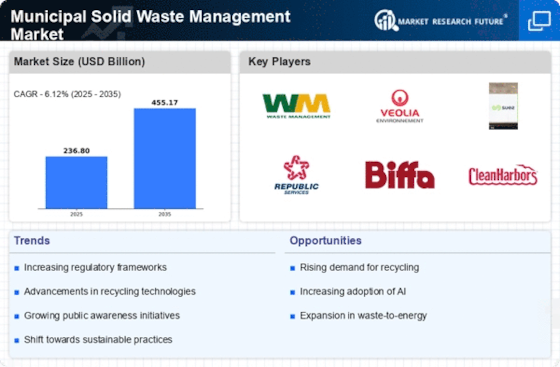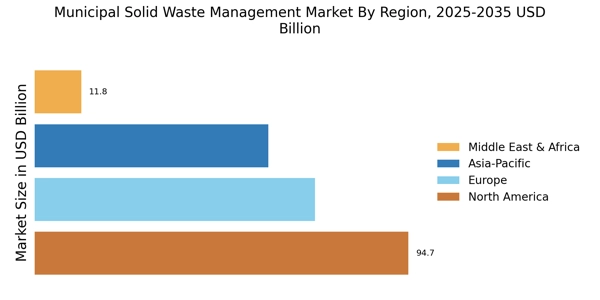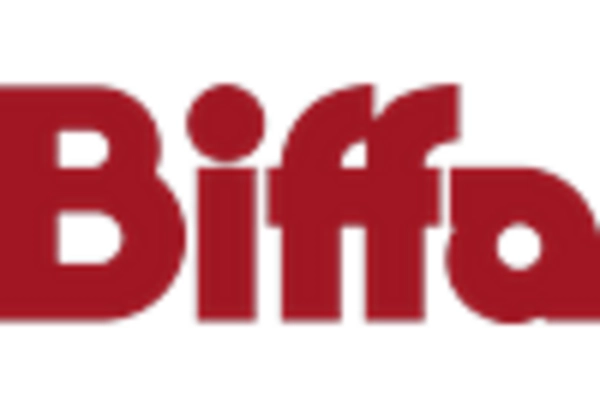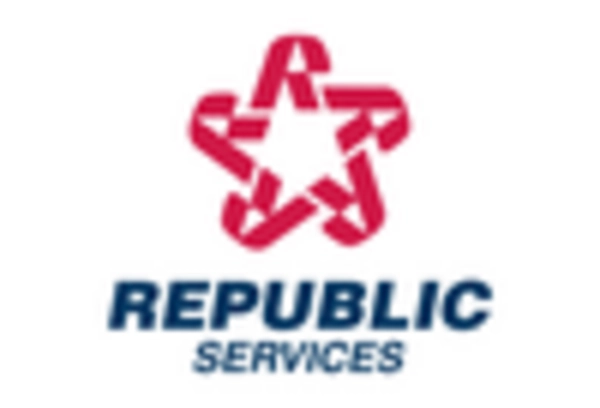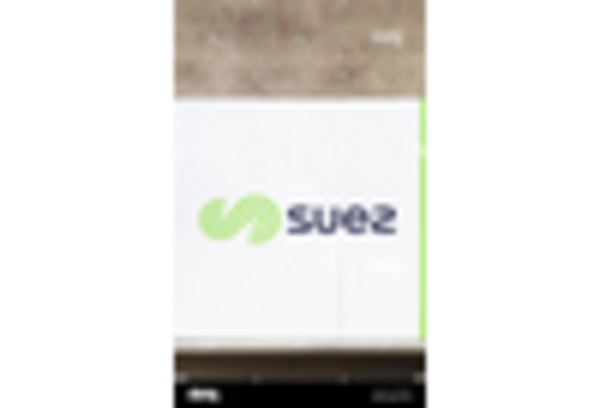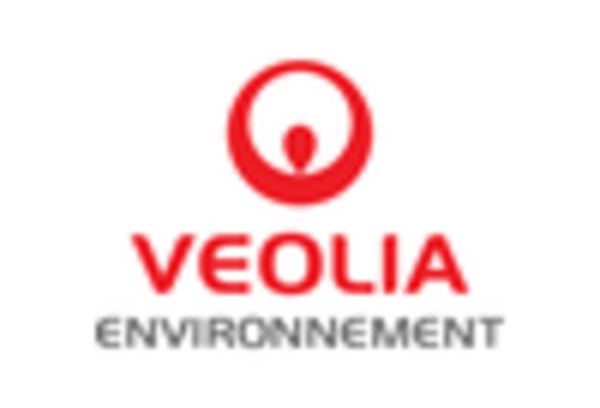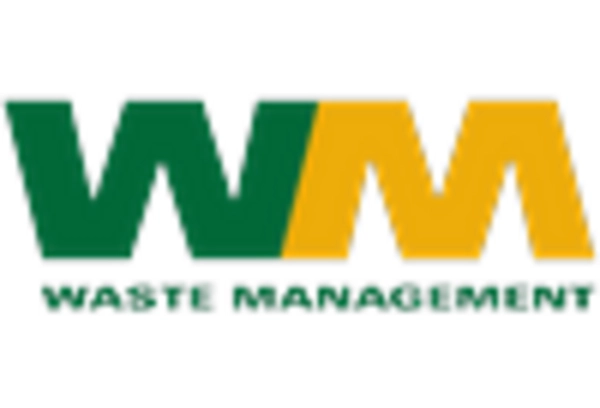Increasing Urbanization
The rapid pace of urbanization is a pivotal driver for the Municipal Solid Waste Management Market. As populations migrate to urban areas, the volume of waste generated escalates significantly. It is estimated that urban areas produce approximately 70% of the world's waste. This surge necessitates efficient waste management systems to handle the increasing waste load. Municipalities are compelled to invest in advanced waste management technologies and infrastructure to accommodate this growth. The demand for effective waste collection, recycling, and disposal services is likely to rise, thereby propelling the Municipal Solid Waste Management Market forward. Furthermore, urbanization often leads to the establishment of stricter regulations regarding waste management, further stimulating market growth.
Technological Innovations
Technological innovations are transforming the Municipal Solid Waste Management Market, offering new solutions for waste collection, sorting, and processing. The integration of smart technologies, such as IoT and AI, is enhancing operational efficiency and optimizing waste management processes. For example, smart bins equipped with sensors can monitor waste levels and optimize collection routes, reducing operational costs. Additionally, advancements in recycling technologies are enabling higher recovery rates of materials, which is crucial for sustainability. The market for waste-to-energy technologies is also expanding, providing alternative solutions for waste disposal while generating energy. These technological advancements are likely to attract investments and drive growth in the Municipal Solid Waste Management Market, as municipalities seek to modernize their waste management systems.
Growing Environmental Awareness
The rising environmental awareness among consumers and businesses is significantly influencing the Municipal Solid Waste Management Market. As public consciousness regarding sustainability and environmental protection increases, there is a growing demand for eco-friendly waste management solutions. Consumers are increasingly favoring companies that adopt sustainable practices, which in turn pressures municipalities to enhance their waste management strategies. The market for recycling and composting services is expanding as communities seek to minimize landfill waste. According to recent studies, the recycling rate in many regions has improved, indicating a shift towards more sustainable waste management practices. This trend is likely to continue, driving growth in the Municipal Solid Waste Management Market as stakeholders prioritize environmentally responsible solutions.
Regulatory Frameworks and Policies
The establishment of stringent regulatory frameworks and policies is a crucial driver for the Municipal Solid Waste Management Market. Governments worldwide are increasingly implementing regulations aimed at reducing waste generation and promoting recycling. For instance, many countries have set ambitious targets for waste diversion from landfills, which has led to a surge in demand for waste management services. The implementation of Extended Producer Responsibility (EPR) policies compels manufacturers to take responsibility for the entire lifecycle of their products, including waste management. This regulatory environment fosters innovation and investment in waste management technologies, thereby enhancing the Municipal Solid Waste Management Market. As compliance becomes mandatory, municipalities are likely to allocate more resources to improve their waste management systems.
Economic Growth and Industrialization
Economic growth and industrialization are significant drivers of the Municipal Solid Waste Management Market. As economies develop, there is a corresponding increase in consumption and production activities, leading to higher waste generation. Industrial sectors, in particular, contribute substantially to municipal solid waste, necessitating effective management strategies. The demand for waste management services is expected to rise in tandem with economic expansion, as businesses and municipalities strive to comply with environmental regulations and improve sustainability. Furthermore, the growth of the construction and manufacturing industries often results in increased waste generation, further propelling the Municipal Solid Waste Management Market. This trend suggests a robust market outlook as economies continue to evolve.


